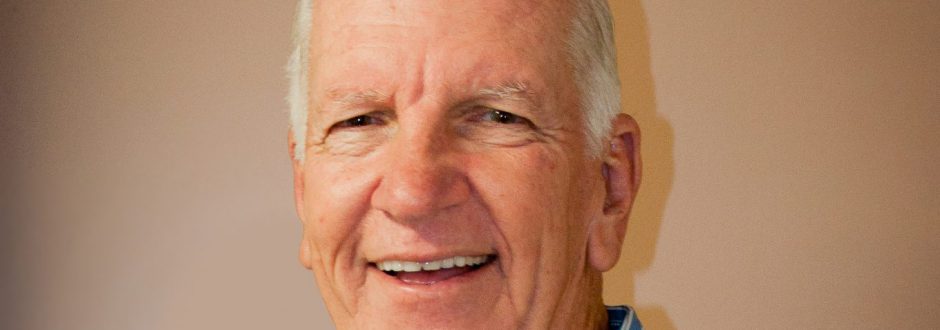In Australia during the last 50 years, we have been invited on at least three occasions to respond to “moments of magnanimity”, says Garry Everett. As a nation, we will soon be offered a fourth moment.
BY Garry Everett
In the life of every nation there occur moments of magnanimity. These are the times when people are challenged to the core of their citizenship. Citizens are invited to display a nobility of mind, a compassionate conscience, and a respectful recognition that they are being called to be better than they are.
In Australia during the last 50 years, we have been invited on at least three occasions to respond magnanimously to such moments. As a result, in 1967 the Australian nation granted Indigenous people the right to vote, in 1992 the High Court of Australia inserted into Australian law the legal doctrine of Native Title, and in 2008 the National Apology was made to Aboriginal and Torres Strait Islander peoples.
As a nation, we will soon be offered a fourth moment.
It is proposed that in 2017, a Constitutional Referendum will be conducted on the matter of recognising, in the Constitution, the First Peoples of our nation. Much groundwork has already begun, but the way forward is not simple. It is not simply a case of a Yes/No answer. The complexity focuses around the exact words to be used to formulate the recognition so longed for by Australia’s indigenous peoples.
The Australian Government has established an expert panel to assist us all in this sensitive process, and that panel should have access to the best ideas that Australians can contribute on this matter.
Whilst choosing the wording is an important task, we will also need to attend to our attitudes. In a recent Catholic discussion group of which I am a member, we were talking about the proposed referendum. A comment was made to the effect that, “this is not a religious issue, so why don’t we leave it alone?” This comment deserves some analysis.
We might ask: “In what way is the referendum not a religious issue?” Both religion and politics have as one of their central concerns the welfare of the individual and the community. Politics and religion share a commitment to the common good. Catholics place great emphasis on connecting faith with life; doing with believing. There should be no divide on this issue of the referendum.
My own hope is that members of all religions in Australia will come to understand that the referendum presents a challenge to us all – a challenge to use our understandings of God, of faith, of church to deliver a just process for, and a just outcome from, the referendum.
My dream is that Australian Catholics will exercise their leadership in ways that involve all the agencies of the Church at a national level. The aim would be to promote intelligent and constructive dialogue about the referendum, and the production of contributions to the Government’s expert panel.
As a small contribution to the discussions, I would suggest that we should be talking about potential phrases and sentences that are built on the Church’s teachings and traditions about the common good. The intention here would be to recommend the inclusion of phrases such as: “partners in our present and future development as a nation”. This description of indigenous is more preferable to: “recognise them as the first peoples of our country”, which virtually consigns indigenous people to the past. Our emphasis should be on living and working together for the common good (wealth).
Wouldn’t it be a magnificent effort if our work managed to have the phrase “the common good”, inserted into the Australian Constitution!
We have been given a two-year opportunity to achieve such an aim. It is not beyond our capacity as long as it is not beyond our desire. With good will and courageous leadership, we could play a truly significant part in this aspect of our nation’s maturing.
Catholics are sometimes accused of defining themselves by their opposition to things. Tim Minchin, addressing graduands of the University of Western Australia last year, said: “Try to express your passion for things you love. Be pro stuff not just anti stuff”. And the philanthropist, Bono, asks: “What is your big idea? What are you willing to spend your moral capital, your intellectual capital, in pursuing?” In the context of the referendum, how will we answer these questions?
Let’s begin. This is a national issue. The Church should engage all its national structures for example, the Australian Catholic Bishops Conference, Catholic Religious Australia, the National Catholic Education Commission, Catholic Health Australia, the National Evangelisation Team, the St Vincent de Paul Society, the National Aboriginal and Torres Strait Islander Catholic Council, the Australian Catholic University and others, in a planned series of activities that will produce the contributions we want. Two outcomes could be envisaged.
Firstly, the discussions should unite and inform Catholics about a common purpose, an expression of our common mission. In this sense the process is as important as the outcome.
Secondly, each national structure could be asked to produce suitable suggestions to be placed before the expert panel. These suggestions should be shared among the Catholic national structures in ways that model working for the common good, and in ways that will stimulate our imagination and passion. There may be a plethora of wonderful contributions that will emerge. We won’t know, however, if we don’t try.
In my opinion, it will be a mark of our maturity as a nation if we can successfully negotiate this next stage of recognising and respecting our indigenous sisters and brothers.
To find out more about the Recognise Campaign visit www.recognise.org.au
